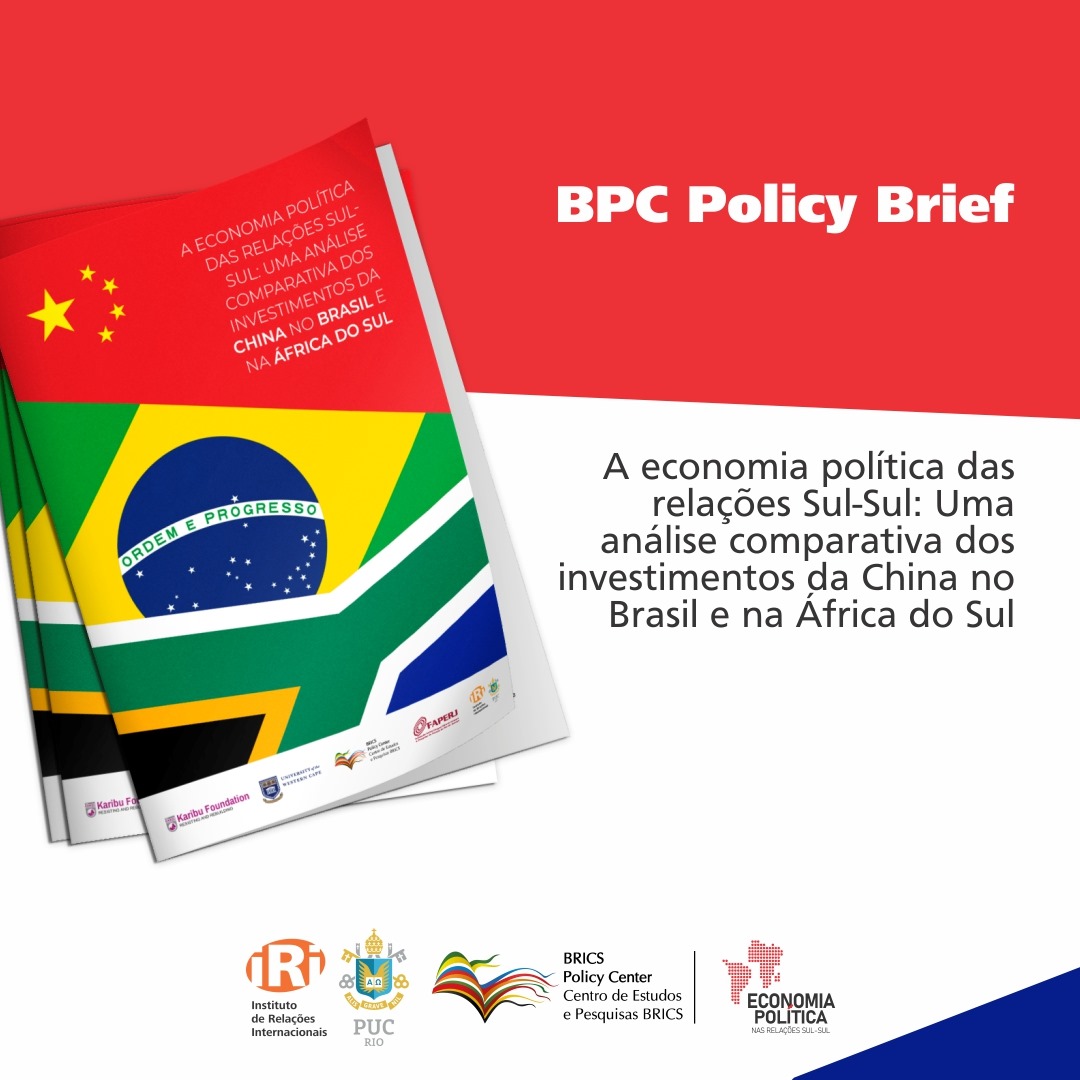
The political economy of South-South relations: A comparative analysis of China’s investments in Brazil and South Africa
The research project “The Political Economy of South-South Relations” has just released the Portuguese translation of the Policy Brief published last year entitled: The Political Economy of South-South Relations: A Comparative Analysis of China’s Investments in Brazil and South Africa.
The study offers a detailed analysis of China’s investments in Brazil and South Africa, focusing on the economic, social and political dynamics involved. Authors Ana Garcia, Lisa Thompson, Cleiton Brito and Maria Elena Rodriguez explore how Chinese investments in the two countries reveal common patterns and differences.
Supported by the Karibu Foundation and FAPERJ, the policy brief compares Chinese capital flows to Brazil and South Africa since the adoption of the “Going Global” (1999) and the “Belt and Road Initiative” (BRI) strategies. The authors show that in Brazil, investments have been concentrated in the energy and infrastructure sector, with Chinese state-owned companies leading projects in areas such as hydroelectric dams and renewable energies. In South Africa, on the other hand, Chinese contributions started earlier and expanded rapidly, with a strong focus on transportation infrastructure and Special Economic Zones (SEZ).
It is important to note that the project is continuing this year during the 1st BRICS Amazon Seminar: Brazil China and South Africa in comparative perspective, an event promoted by the Federal University of Amazonas and the BRICS Policy Center in Manaus. The researchers took advantage of their visit to Manaus to conduct interviews with Chinese companies present in the Manaus Free Trade Zone, as well as the local administration.

